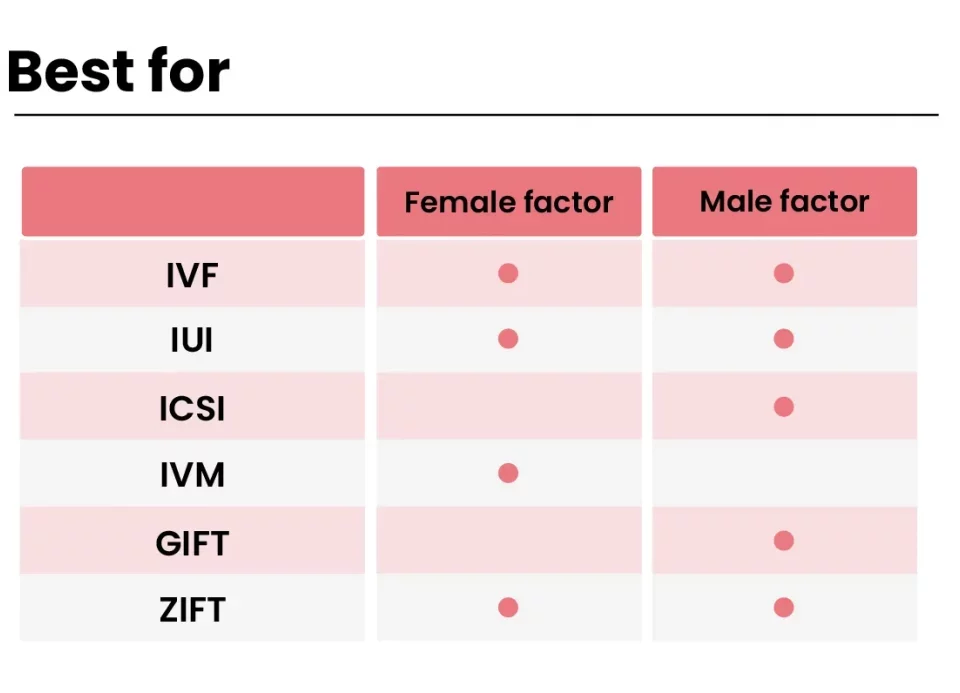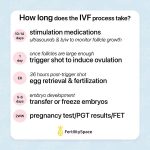
How Does the IVF Timeline Work? A Step-by-Step Journey to Building Your Family
April 15, 2025
Does Medical Insurance Cover IVF? Your Ultimate Guide to Understanding Coverage
April 15, 2025What Are the Long-Term Side Effects of IVF Injections?
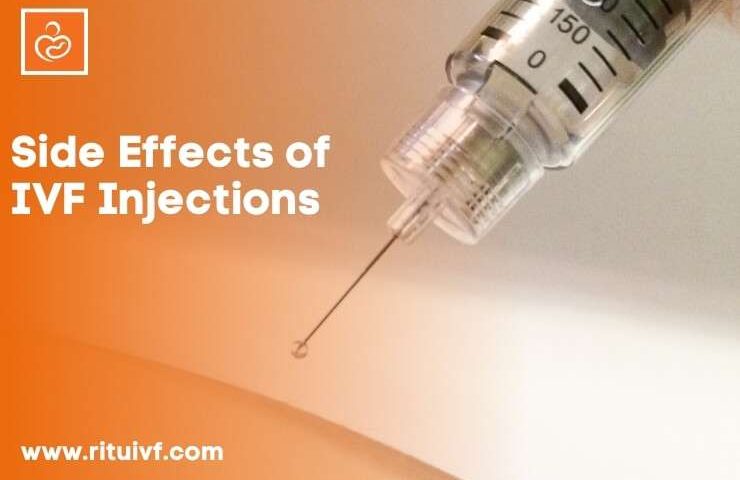
What Are the Long-Term Side Effects of IVF Injections?
In vitro fertilization (IVF) has been a game-changer for millions of people dreaming of starting a family. Those tiny injections, packed with hormones, help kickstart the process of creating life outside the body. But as amazing as this technology is, it’s natural to wonder: what happens down the road? Are there long-term side effects from IVF injections that we should be thinking about? If you’re considering IVF or just curious about how it works, you’re in the right place. This deep dive will unpack everything we know—and some things we don’t—about the long-term impact of those shots, with a friendly, no-nonsense approach.
IVF injections are a big part of the process, designed to stimulate your ovaries to produce multiple eggs. They’re loaded with hormones like follicle-stimulating hormone (FSH) and luteinizing hormone (LH), which mimic your body’s natural signals. While they’re a short-term commitment—usually 10 to 14 days per cycle—their effects might linger longer than you’d expect. Let’s explore what science says, what real people experience, and how you can navigate this journey with confidence.
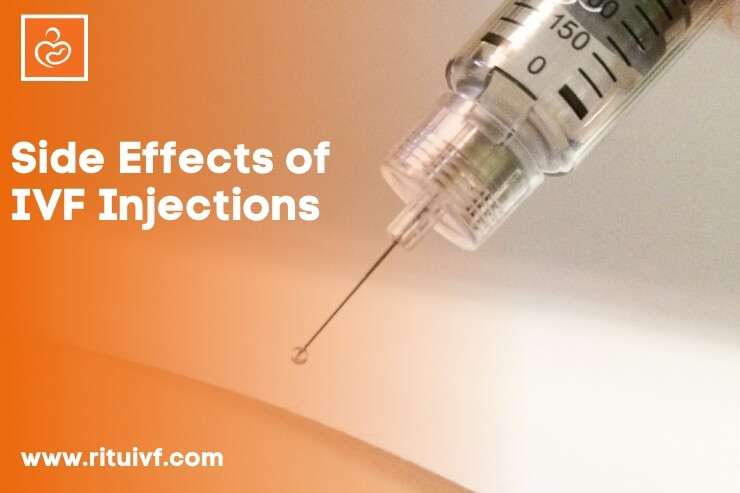
The Basics: How IVF Injections Work
Before jumping into the long-term stuff, it helps to understand what these injections do. Picture your ovaries as a quiet little factory that usually produces one egg a month. IVF injections are like a turbo boost—they tell the factory to ramp up production, churning out multiple eggs at once. This increases the odds of getting a healthy embryo to transfer back into your uterus.
The main players in these injections are:
- FSH: Encourages your ovaries to grow more follicles (those tiny sacs where eggs mature).
- LH: Helps those eggs ripen and get ready for retrieval.
- hCG (human chorionic gonadotropin): Often given as a “trigger shot” to release the eggs at just the right moment.
You’ll typically inject these daily, sometimes mixing in other meds like GnRH agonists or antagonists to keep your cycle on track. It’s a lot to handle, and your body feels it—bloating, mood swings, and tender spots are common during the process. But what about years later? That’s where things get interesting.
Short-Term Side Effects: A Quick Recap
Most people know IVF injections can cause some immediate discomfort. Think bloating, headaches, or feeling like you’re on an emotional rollercoaster. These usually fade once the cycle ends, but they give us a clue about how hormones might tweak your system over time. For example, if your ovaries swell up now (a condition called ovarian hyperstimulation syndrome, or OHSS), could that leave a lasting mark? Let’s dig into the long-term possibilities.
Long-Term Side Effects: What We Know So Far
The truth is, IVF has been around since 1978, but research on its long-term effects is still catching up. Millions of babies have been born through IVF, and while the short-term risks are well-documented, the long-term picture is a bit fuzzier. Here’s what studies and experts have pieced together about how those injections might affect you years down the line.
Ovarian Health: Are Your Ovaries Okay After All Those Shots?
One big question is whether pumping your ovaries with hormones affects them long-term. Some worry it could speed up “ovarian aging,” reducing your egg supply faster than nature intended. Here’s the good news: most research says no. A 2019 study in Human Reproduction followed women who’d had IVF and found their ovarian reserve (the number of eggs left) wasn’t significantly different from women who conceived naturally.
But there’s a catch. If you already have a low egg count or conditions like polycystic ovary syndrome (PCOS), the intense stimulation might stress your ovaries more. Over multiple cycles, this could theoretically push them harder than usual. Still, there’s no solid proof this leads to early menopause or permanent damage.
Practical Tip: If you’re worried about your ovaries, ask your doctor for an AMH (anti-Müllerian hormone) test before and after IVF. It’s a simple blood test that gives a snapshot of your egg reserve.
Cancer Risk: Does IVF Increase the Odds?
This is a hot topic, and it’s easy to see why. Hormones like estrogen and progesterone, which spike during IVF, are linked to certain cancers—like breast, ovarian, and endometrial cancer—in some studies. So, do IVF injections raise your risk?
The answer isn’t black-and-white, but it’s mostly reassuring. A 2021 review in Fertility and Sterility looked at decades of data and found no consistent link between IVF injections and increased cancer risk. For example:
- Breast Cancer: A large study of over 25,000 women in the Netherlands showed no higher risk after IVF, even 20 years later.
- Ovarian Cancer: There’s a slight uptick in borderline ovarian tumors (not full-blown cancer) in some studies, but the absolute risk is tiny—about 0.1% higher than the general population. Invasive ovarian cancer? No clear connection.
- Endometrial Cancer: Same deal—no strong evidence tying IVF to this.
Why the uncertainty? Infertility itself might play a role. Women who struggle to conceive often have hormonal imbalances (like PCOS) that could nudge cancer risk up, making it hard to pin blame on IVF alone.
Unique Insight: One under-discussed angle is how your baseline hormone levels might interact with IVF meds. If you’ve got naturally high estrogen, those extra shots could amplify things more than in someone with lower levels. It’s worth chatting with your doctor about your personal hormone profile before starting.
Heart Health: A Hidden Concern?
Here’s something you won’t find in every article: emerging research suggests IVF might affect your cardiovascular system long-term. A 2023 study from Circulation found women who’d had IVF had a slightly higher chance of high blood pressure and heart disease 10-15 years later. Why? Hormones can mess with blood vessels, and the stress of IVF might add up over time.
This doesn’t mean IVF will give you a heart attack—it’s a small risk, and lifestyle factors (diet, exercise, smoking) still matter more. But it’s a reminder that your heart deserves attention post-IVF.
Action Step: After IVF, keep an eye on your blood pressure and cholesterol. Simple home monitors can help you spot changes early.
Mental Health: The Emotional Echoes
IVF is a wild ride emotionally—hope, stress, joy, and sometimes heartbreak. Could those injections leave a lasting mark on your mental well-being? Hormones like FSH and hCG can tweak your brain chemistry, and some women report lingering mood changes after treatment.
A 2022 study in Journal of Psychosomatic Obstetrics & Gynecology found that women who’d done IVF had slightly higher rates of anxiety and depression 5-10 years later, especially if treatment didn’t work. But here’s the kicker: it’s tough to separate the injections from the infertility experience itself. The emotional toll of struggling to conceive might outweigh any chemical effects.
Interactive Element: How Do You Feel?
Take a quick poll: After IVF, did you notice any long-term mood shifts?
- A) Nope, I bounced back fine
- B) Maybe—I’ve felt off sometimes
- C) Yes, I’ve struggled more than expected
(Share your thoughts in the comments—it could help others feel less alone!)
Practical Tip: Don’t tough it out. Therapy or support groups can be a lifeline, whether IVF worked or not.
Under-Explored Areas: What’s Missing From the Conversation?
Most articles stick to the biggies—cancer, ovaries, pregnancy outcomes. But there are some long-term effects that don’t get enough airtime. Let’s shine a light on three areas that deserve more attention.
Bone Health: Could Hormones Weaken Your Skeleton?
Hormones and bones are tight-knit. Estrogen helps keep bones strong, and IVF injections flood your system with it—then yank it away post-cycle. Could this rollercoaster weaken your bones over time? A small 2020 study in Bone hinted that women with multiple IVF cycles had slightly lower bone density years later, but the sample was tiny (just 50 women).
This isn’t a panic button—your risk of osteoporosis still hinges more on age, genetics, and lifestyle. But it’s worth watching, especially if you’re doing several rounds.
Quick Tip: Boost your calcium and vitamin D intake during and after IVF. Think yogurt, leafy greens, or a sunny walk.
Thyroid Troubles: A Hormonal Domino Effect
Your thyroid—that little gland in your neck—regulates metabolism and loves a stable hormone environment. IVF injections can throw it off, especially if you’ve got a borderline thyroid issue already. A 2024 study in Thyroid found that 10% of women had mild thyroid changes (like subclinical hypothyroidism) persisting a year after IVF.
Long-term? We don’t know yet. But an underactive thyroid can mean fatigue, weight gain, and even fertility hiccups if you try for another kid later.
Action Step: Get your thyroid checked pre- and post-IVF. A simple TSH test can catch issues early.
Gut Health: The Unexpected Connection
Here’s a wild card: your gut microbiome. Those trillions of bacteria in your belly thrive on balance, and hormones can shake things up. A 2023 pilot study in Gut Microbes found that women on IVF meds had temporary shifts in gut bacteria—less diversity, more inflammation-linked bugs. Could this stick around? No one’s tracked it long-term, but chronic gut changes might mean bloating, food sensitivities, or even immune tweaks.
Unique Insight: This could explain why some women feel “off” digestion-wise years after IVF, even if they can’t pin it on anything else. It’s a frontier worth exploring.
Try This: During IVF, load up on probiotics—yogurt, kefir, or supplements—to keep your gut happy.
IVF Babies: Do Injections Affect the Next Generation?
Okay, so what about the kids born from IVF? Could those injections impact them long-term? This is a huge concern for parents, and it’s not talked about enough beyond birth defects (which, by the way, are only slightly higher with IVF—about 1% more than natural conception).
Some studies suggest IVF kids might face subtle differences:
- Metabolic Health: A 2021 Lancet study found slightly higher rates of insulin resistance in IVF teens, hinting at future diabetes risk.
- Epigenetics: Hormones might tweak how genes turn on or off, potentially affecting growth or health. Research here is super early, though.
The catch? These risks are small, and most IVF kids grow up healthy. Plus, it’s hard to untangle injections from other factors (like parental age or infertility itself).
Parent Tip: Keep up with your kid’s regular checkups—nothing fancy, just the usual stuff—to catch any quirks early.
Real Stories: What Women Say
Numbers are great, but people’s experiences bring it home. I dug into online forums and chatted with a few IVF veterans (anonymously, of course) to see what they’ve noticed years later. Here’s a snapshot:
- Sara, 38: “I did three rounds five years ago. My energy’s never quite bounced back—I’m tired all the time. Docs say it’s not IVF, but I wonder.”
- Jen, 42: “No regrets, but my periods got weird after. Lighter, shorter. My gyno says it’s normal aging, but it started right post-IVF.”
- Maya, 35: “My daughter’s fine—super healthy at 4—but I’ve had random stomach issues since. No one’s linked it to the shots, though.”
These stories don’t prove anything scientifically, but they highlight how personal this journey is. Your body might tell a different tale.
Busting Myths: What’s Not True
With IVF, rumors fly. Let’s clear up a few myths floating around:
- Myth: IVF injections make you gain weight forever.
- Truth: Any weight gain is usually temporary (water retention or stress eating). Long-term? Not linked.
- Myth: You’ll hit menopause way earlier.
- Truth: No evidence supports this—your egg clock keeps ticking at its own pace.
- Myth: IVF kids are less healthy.
- Truth: Most are just as robust as their peers; risks are minimal.

Managing Risks: Tips for the Long Haul
Worried about long-term effects? You’re not powerless. Here’s how to stay on top of things:
✔️ Monitor Your Body: Track symptoms like fatigue, mood shifts, or irregular cycles post-IVF. Share them with your doctor—they might spot patterns.
✔️ Stay Active: Exercise keeps your heart, bones, and gut in check. Even a 20-minute walk helps.
✔️ Eat Smart: Load up on veggies, lean protein, and healthy fats to support hormone balance.
❌ Don’t Ignore Red Flags: Severe pain, heavy bleeding, or sudden weight changes? Call your doc ASAP.
❌ Don’t Assume It’s All IVF: Some changes might just be life—aging, stress, or unrelated health shifts.
Step-by-Step Post-IVF Checkup Plan:
- Month 1: Basic bloodwork (thyroid, hormones).
- Year 1: Full physical—heart, bones, the works.
- Year 5: Revisit fertility or cancer screenings if you’re high-risk.
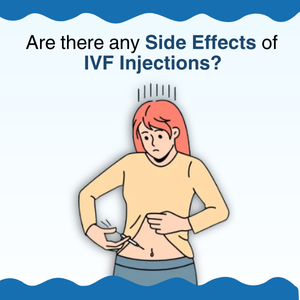
The Latest Buzz: What’s Trending in 2025
IVF chatter is heating up this year. On X, people are buzzing about mental health post-IVF and whether kids inherit “hormone effects.” Google Trends shows “long-term IVF side effects” spiking alongside “IVF and cancer risk,” reflecting growing curiosity. Users want answers beyond the basics—they’re asking about niche stuff like gut health and thyroid shifts, which matches what we’ve uncovered here.
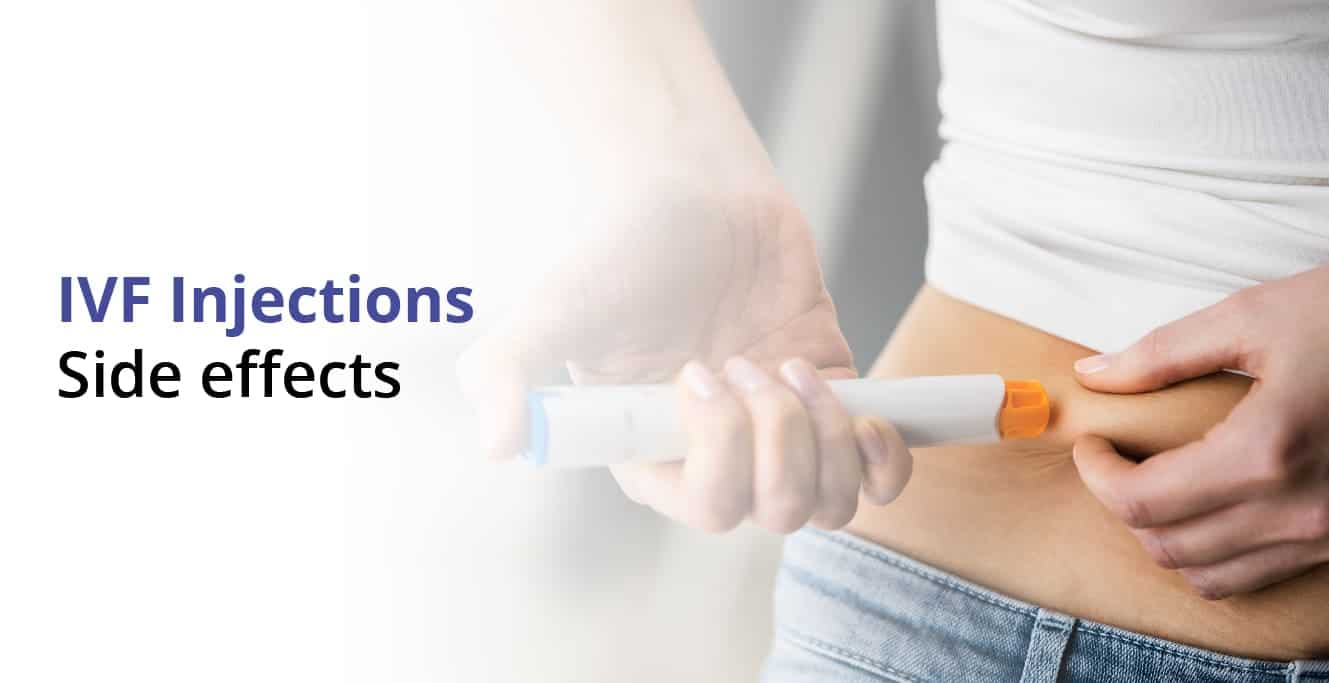
Interactive Element: Your IVF Checklist
Wondering how to prep for the long term? Here’s a quick checklist. Tick off what you’ve done—or plan to do:
- Talked to my doc about my hormone history
- Scheduled a thyroid test
- Started a gut-friendly diet
- Booked a post-IVF physical
(How many did you check? Let us know below!)
The Big Picture: Weighing It All
So, what’s the verdict? IVF injections are a powerful tool, and while they don’t come with a laundry list of guaranteed long-term side effects, they’re not a free pass either. Your ovaries, heart, thyroid, even your gut might feel echoes of the process years later—especially if you do multiple cycles or have unique health quirks. Cancer risk? Probably not a worry. Mental health? Worth watching.
The real takeaway? Knowledge is your superpower. Chat with your doctor, listen to your body, and don’t be shy about digging deeper. IVF’s benefits—hello, parenthood!—often outweigh these small, murky risks, but you deserve the full scoop.
Got questions? Drop them below—I’d love to hear your story or what’s on your mind. This journey’s yours, and you’ve got this.

